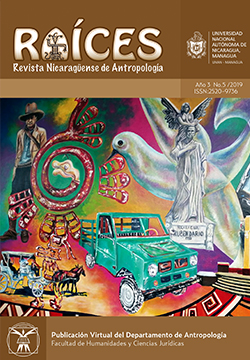Public policies in Latin America, centralization against the proposal of decentralization, autonomy and its national formations
DOI:
https://doi.org/10.5377/raices.v3i5.8812Keywords:
Students, student movement, Cuban revolution, Sandinista revolutionAbstract
The purpose of this paper is to make a brief analysis of the political behavior of the Nicaraguan University Student Movement and the influence that the Cuban Revolution exerted on it, since knowledge of history is of strategic importance for all students and mainly for those who hold positions of representation in their respective institutions. History, among other things, serves to know the efforts made by those who preceded us, to leave us a society where the dignity of the human being is respected; because only knowing objectively our history can we begin to value, love and identify with the necessary tools and the rich heritage of our ancestors. It will also analyze the development of the revolutionary process that Nicaragua lived, because the revolution was born from the student movement, or at least that is where the antagonism to the Somoza dictatorship and subsequent defense of the Sandinista Popular Revolution was activated.
Downloads
References
Echeverria, R. (1974). Seminario Latinoamericano: hacia una conceptualizacion del fenomeno de los movimientos universitarios de America Latina. Santiago de Chile: Patricio Dooner.
Echeverria, R. (1994). El concepto de Movimiento Social. Patricio Dooner.
Ezequiel, N. (2011). La desigualdad en el acceso de la educacion univeristaria Argentina. Lecciones y Ensayos #89, 357.
Feuer, L. (1969). El cuestionamiento estudiantil del establishment en los paises capitalistas y socialistas. Buenos Aires: Paidos.
Gaona, H. T. (1998). Cultura política, poder y racionalidad. Alteridades, 8, 157.
Revoluciones Cuba-Nicaragua 20 años después. (30 de Diciembre de 2008). El Nuevo Diario.




